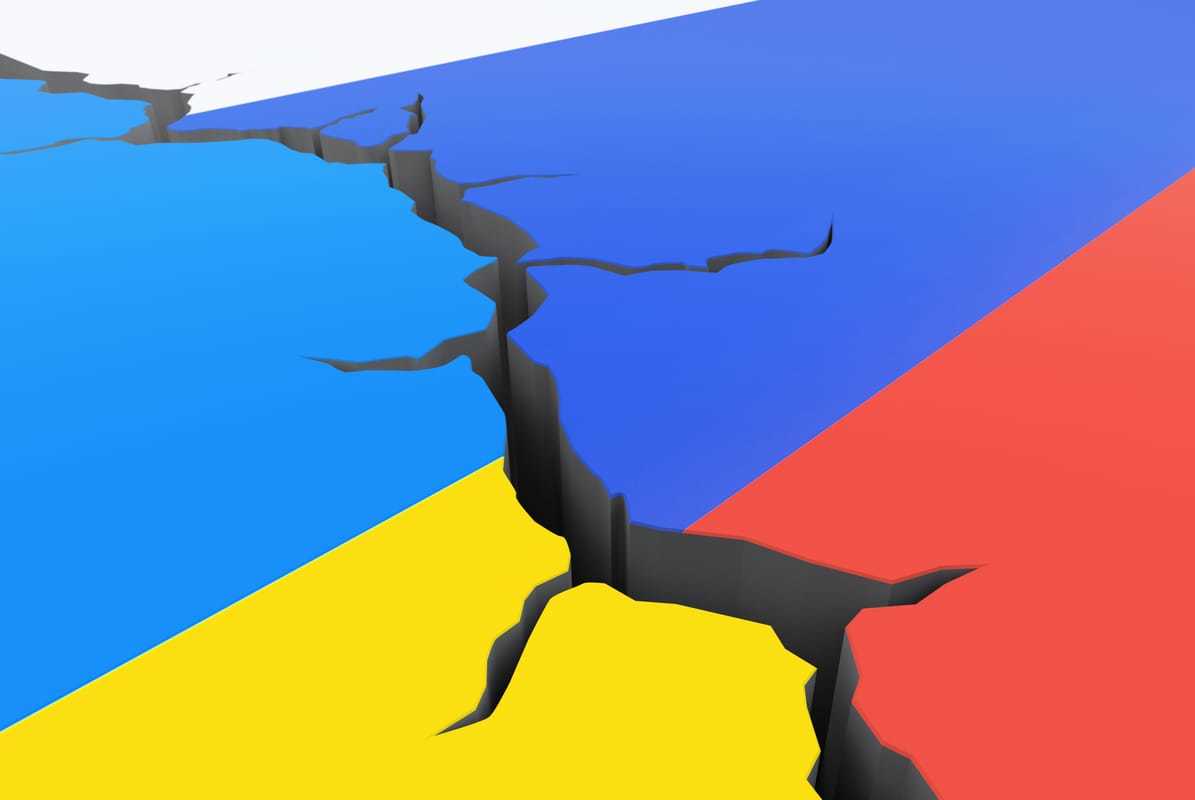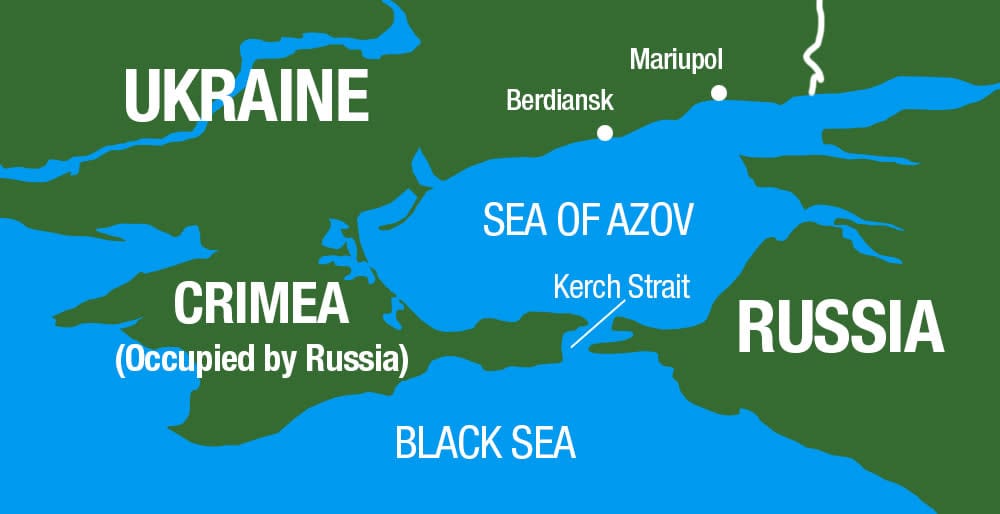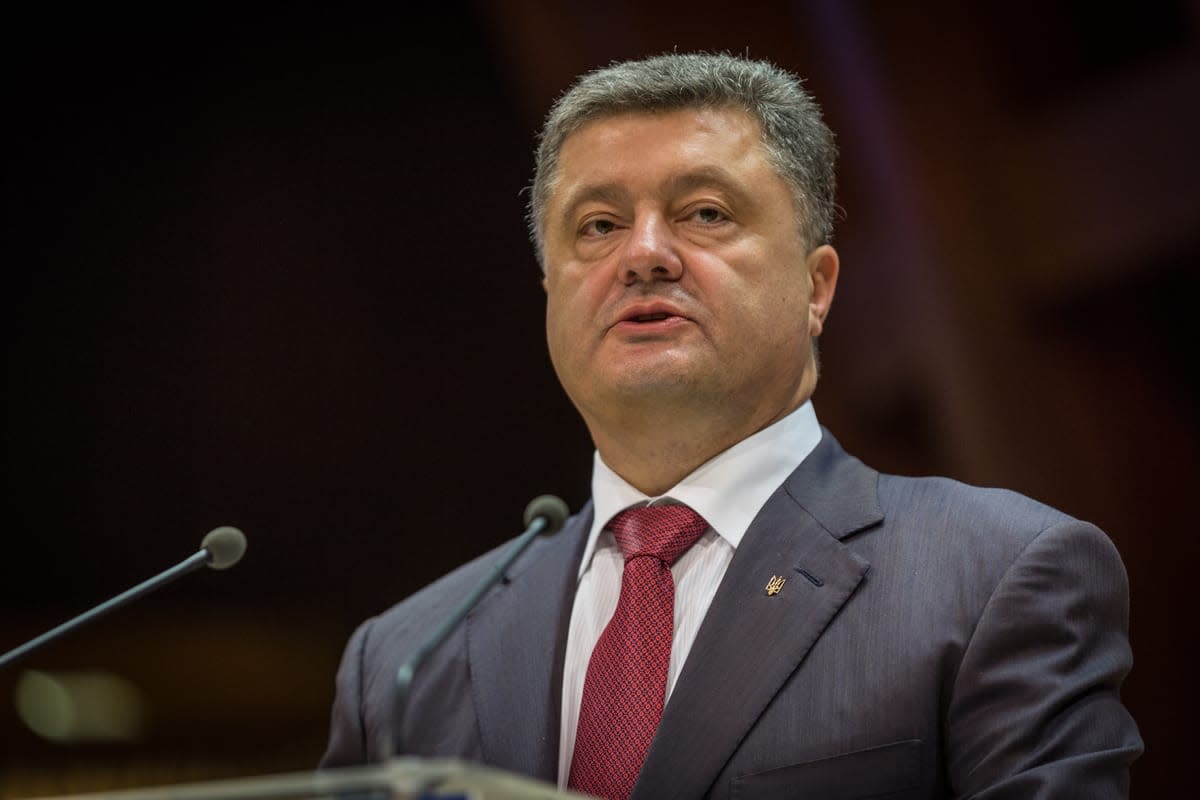
It's now more than a week since the military of the Russian Federation fired on three small Ukrainian naval ships, boarded and seized them, and took 24 Ukrainian servicemen captive. Six were injured, three of them seriously.
The violation took place in the vicinity of Kerch Strait, the narrow passage between Russia and Russian-occupied Crimea that links the Black and Azov seas. The strait is the sole point of access for shipping to the otherwise landlocked Sea of Azov and the Ukrainian ports Mariupol and Berdiansk.

The United Nations, the United States, the European Union, most European and many other countries, including Australia, issued statements condemning the Russian aggression and calling for the return of the ships and their crews.
Russia described its action as a response to Ukrainian provocation, alleging that the incident had been confected to boost President Petro Poroshenko’s flagging support ahead of presidential elections in March. Disregarding its 2003 bilateral agreement with Ukraine that designates the strait as joint territorial waters of both countries, Russia has accused Ukraine’s ships of breaching what it now regards as its maritime border.
Ukraine’s capacity to respond was limited. A military response, given Russia’s likely retaliation, was unthinkable. Poroshenko called on the West for support, asking in particular for a stiffening of sanctions – a move on which none of his addressees have embarked so far.
At the G20 summit in Argentina, German Chancellor Angela Merkel proposed four-party talks involving Germany, France, Ukraine and Russia to try to de-escalate the conflict. But similar “Normandy-format” discussions have done little to resolve the five-year-old war in Ukraine’s east.
At home, Poroshenko asked parliament to approve a state of military alert, generally referred to in English-language media as “martial law”, but in fact it mainly enables the state to mobilise people and resources for military purposes, if needed.

Parliament acceded to his request for a period of 30 days, and in regions adjacent to the coast and the Russian border. For the duration of the alert, entry into Ukraine of male citizens of the Russian Federation aged between 16 and 60 was prohibited. The intention, Poroshenko explained, was to prevent the infiltration into Ukraine of de facto Russian military personnel.
To date, the Russian Federation is unmoved. It's holding the majority of the captured seamen under arrest, reportedly in solitary confinement in Moscow. Criminal charges have been filed against them.
Russia’s hybrid war against Ukraine has now lasted half a decade. In the course of that war, Russia illegally annexed Crimea after Russian troops without insignia occupied the peninsula. It fomented an anti-Kyiv insurgency in the south and east of Ukraine, which in the easternmost part of the country was successful, triggering a war that's cost more than 10,000 lives and daily brings new injuries and deaths.
Russia supplies its puppet regimes in Donetsk and Luhansk with military expertise and materiel. Hitherto, official spokespeople of the RF have denied involvement in these acts by the Russian state.
The Kerch attack is different. In this instance there's been no denial; the Russian military engaged in aggression in full view of the international community, signalling a new level of readiness to challenge the rest of the world to respond. In issuing such a challenge, the Russian Federation has nothing to lose and much to gain.
Should the West’s response to Russia’s aggression be as anaemic, disunited and bereft of consequence as it's been in preceding years, Russia will have established that it controls access to the Azov Sea and, thus, holds to ransom the Ukrainian Azov Sea ports and the economy of their hinterland.
Agreements no protection
It will have demonstrated to Ukraine, yet again, that international agreements are no protection against aggression and that the West is either powerless to help Ukraine, or unwilling to do so, or both. The same point will not be lost upon the Russian domestic audience, burnishing the image of Russia as an effective and muscular international actor, and boosting – if it needed boosting – the popularity of President Vladimir Putin.
This serial Russian victory may even dull the pain of a possible setback on the cultural battleground. The spiritual leader of world Orthodoxy, Ecumenical Patriarch Bartholomew, has indicated readiness to extend recognition to a national Orthodox Church in Ukraine, putting an end to the situation where the sole canonical Orthodox Church in Ukraine is the one in union with the Moscow Patriarchate.
Should the West’s response to Russia’s aggression be as anaemic, disunited and bereft of consequence ... Russia will have established that it controls access to the Azov Sea and, thus, holds to ransom the Ukrainian Azov Sea ports and the economy of their hinterland.
On the other hand, the West could demonstrate uncharacteristic determination and, for example, seriously intensify sanctions, especially personal sanctions directed at individuals close to Vladimir Putin, or exclude Russia from the SWIFT international banking system, or freeze the international assets of some Russian banks, or enhance the defence assistance provided to Ukraine, or boost the NATO presence on the Black Sea.
Should the Western response inflict discomfort on the Russian Federation sufficient to persuade it to return the ships and sailors and restore the open status of the Kerch waterway, Russia would be in a position to present itself as reasonable and conciliatory, contributing constructively to the de-escalation of tensions in which all parties are interested.
Australia's stance
Australia has been principled in its attitude toward Russia, especially since a Russian weapons system operated by the Russian military or their proxies from rebel-held territory in Eastern Ukraine shot down Flight MH17, killing 298 passengers and crew, 38 of them Australian. (Russia continues to deny responsibility for this act.) With like-minded members of the international community, Australia has imposed and maintained sanctions against the Russian Federation, and condemned its acts of aggression in international forums. On this matter, the two sides of Australian politics have displayed laudable bipartisanship.
On Monday, the retiring Labor parliamentarian Michael Danby introduced into the Australian Parliament a private member’s bill similar to the Magnitsky Acts that have been passed in the United States, the United Kingdom, Canada and the three Baltic republics.
Magnitsky Acts bear the name of Sergei Magnitsky, a tax accountant who accused Russian officials of conspiring to defraud the state and who died after almost a year in prison without trial and denied proper medical help.
Such legislation enables governments to freeze the assets of individuals identified as violating human rights or engaging in other criminal activity, and to deny them entry into the countries concerned.
It's to be hoped that Danby’s bill becomes law, enabling Australia more effectively to exert pressure on the individuals behind the reprehensible actions in which states sometimes engage.





